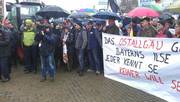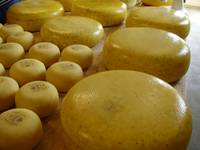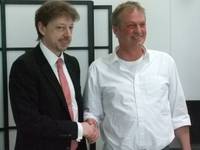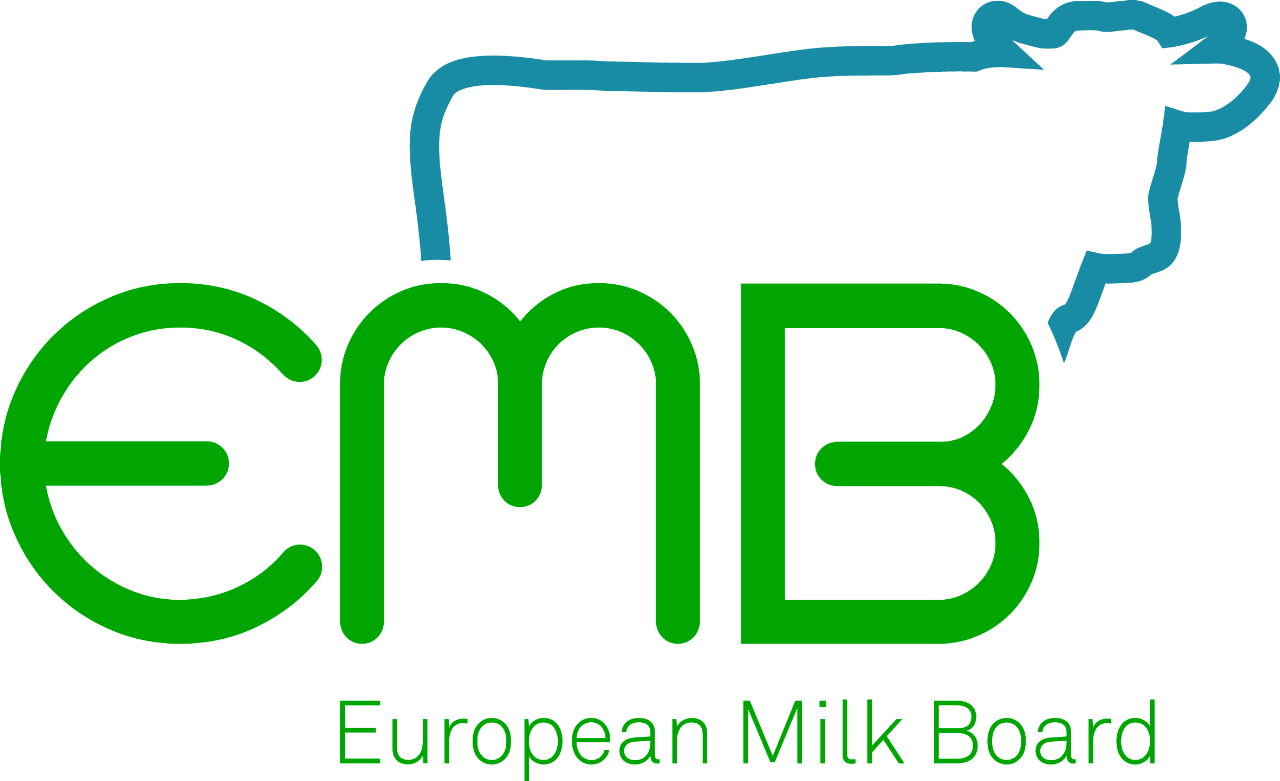EMB Newsletter May 2013
Newsletter as PDF
Contact
European Milk Board
Bahnhofstr. 31
D-59065 Hamm
Phone: 0049/2381/4360495
Fax: 0049/2381/4361153
E-Mail: office@europeanmilkboard.org
Website: http://www.europeanmilkboard.org
Newsletter as PDF
Contact
EMB - European Milk Board asbl
Rue de la Loi 155
B-1040 Bruxelles
Phone: +32 - 2808 - 1935
Fax: +32 - 2808 - 8265
Dear Dairy Farmers and Interested Parties,
As I often hear to my satisfaction, time and again many of us in conversation with colleagues and friends recall the huge dairy farmers’ demonstration in Brussels in November 2012. It was a complete success for us dairy farmers, because it was loud in the street, everywhere in the media, and at the same time unpleasant for decision-makers in Brussels and in the member states. It opened key doors for us in politics, which in this crucial year of 2013 may be the decisive factor in the reform of the EU Common Agricultural Market Organisation and Commissioner for Agriculture Ciolos’ new proposals for the milk market.
We must grasp this opportunity! Let me make it quite plain: the battle for the economic survival of the European dairy farmers must be fought now, not in 2015 when the milk quotas are abolished. It will be too late then, and we will be able to leave our tractors on the farm with no qualms. What is more, at the end of 2014 there will be a new EU Commission in office and the cards will be reshuffled – the outcome uncertain. That is why we must fight now and complete the successful task we started with the 2009 milk strike, noisily and with our heads held high.
We dairy farmers can be proud of our successes so far. More than anything the most recent European Parliament proposal for the voluntary delivery suspension as a crisis instrument in the milk market is an important step forwards towards a radical change in the system with flexible management of EU milk supply. Unfortunately this success is not yet irreversible and must be defended up until this summer against the strong lobby of the dairy industry and its associations. Yet after the huge dairy farmers’ demonstration last November our biggest opponents are no longer in Brussels, they are at home in the capitals of the member states. More than any other, the German government in Berlin has been unwavering in its pursuit of liberalisation of the milk market.
As you will see in this issue of the EMB Newsletter, that is why the EMB milk producers resolutely spoke their mind to the German Ministers of Agriculture at Berchtesgaden, southern Germany, in mid-April, and now intend to demonstrate in large numbers and with high-impact campaigns of action in the German capital of Berlin on 3 and 4 June 2013. Do not let up in this decisive year of 2013 and come to Berlin in early June, as many of you as possible. It is worth it, for short-term price rises – as now announced – are no solution. They are not even a drop in the ocean. Don’t let them have even a chance of fobbing you off!
Erwin Schöpges (Member of the EMB Board)
Dairy farmers, off to Berlin!
Big demonstration of European dairy farmers in the German capital of Berlin on 3 and 4 June
Dear Fellow Farmers,
The German government cannot be allowed to continually veto every reasonable proposal in Brussels for a functioning milk market. In the scenario of current negotiations between the European Parliament, Member States and the Commission on the Common Agricultural Market Organisation, we must put pressure on the German government to make sure the voluntary supply suspension is not left by the wayside as a crisis instrument for the milk market.
European milk producers call for German government to change course
The following press release was published on the occasion of the major milk producers’ demonstration in Berchtesgaden in southern Germany on 10 and 12 April.
(Berchtesgaden, 12th April 2013) A major tractor convoy will close the three-day demonstration of milk producers and concerned citizens from all over Europe in the Southern German town of Berchtesgaden today. Around 750 milk producers of the European Milk Board (EMB), the association representing milk producer organisations in Europe, had taken the meeting of Germany’s Ministers for Agriculture as an opportunity to show their disagreement with the German government's milk policy. Their motto: "organising markets rather than managing crises".
Dairy products with more added value – A model for the future?
Dairy products with more added value are reputed to make the crucial economic difference for milk producers in the milk market. To examine this in depth the Dutch Dairymen Board (DDB), one of the two EMB member organisations in the Netherlands, organised a series of events on four dates. Speakers invited were representatives of the dairy co-operatives, politics and science.
Fair Milk in Belgium: co-operation with Luxembourg dairy given official go-ahead
According to a report from the eastern Belgian daily newspaper GrenzEcho (17 April), co-operation between the Belgian co-operative Faircoop and the Luxembourg dairy Luxlait was given the official go-ahead on 16 April with the signing of a joint declaration. Under the brand name “Fairebel”, Faircoop has been marketing the Fair Milk initiated by the European Milk Board (EMB) in Belgium since 2010. Fairebel products such as semi-skimmed milk and chocolate milk are filled by Luxlait in Luxembourg, with the latter not having Belgian suppliers.
British firm of consultants forecasts milk price slump after 2015
According to the British firm of consultants The Dairy Group, milk prices in the EU could plummet when the milk quotas are abolished in 2015 because of an increase in production. Current assessments that the volume of milk produced in some EU member states will increase are, they say, not unfounded. They point to growing direct investments from China in the Irish dairy sector and the Danish dairy group Arla’s plans to increase capacity.
EMB Calendar
Please find below some of the most important events in May 2013:
6.05: EMB Board meeting in Brussels
9/10.5: Farmers’ Conference in Latvia
13/14.05: Meeting with the Irish Minister of Agriculture in Brussels
14/15.05: ARC2020 workshop in Berlin
Full Texts
Dairy farmers, off to Berlin!

Big demonstration of European dairy farmers in the German capital of Berlin on 3 and 4 June
Dear Fellow Farmers,
The German government cannot be allowed to continually veto every reasonable proposal in Brussels for a functioning milk market. In the scenario of current negotiations between the European Parliament, Member States and the Commission on the Common Agricultural Market Organisation, we must put pressure on the German government to make sure the voluntary supply suspension is not left by the wayside as a crisis instrument for the milk market.
That is why we farmers of the European Milk Board (EMB) will be travelling to Berlin with our tractors and demonstrating outside the Federal Chancellor’s Office on 3 and 4 June 2013.
It is important that we turn up in Berlin in large numbers and show the German government with an impressive symbolic action that they cannot have it their own way. Get ready to roll, let’s make the demo a complete success!
We will be letting you have more details of the timetable shortly, or you can ask for them from the Brussels EMB Office (e-mail: office@europeanmilkboard.org or phone: 0032 2 808 1935)
Romuald Schaber (President of the EMB)





